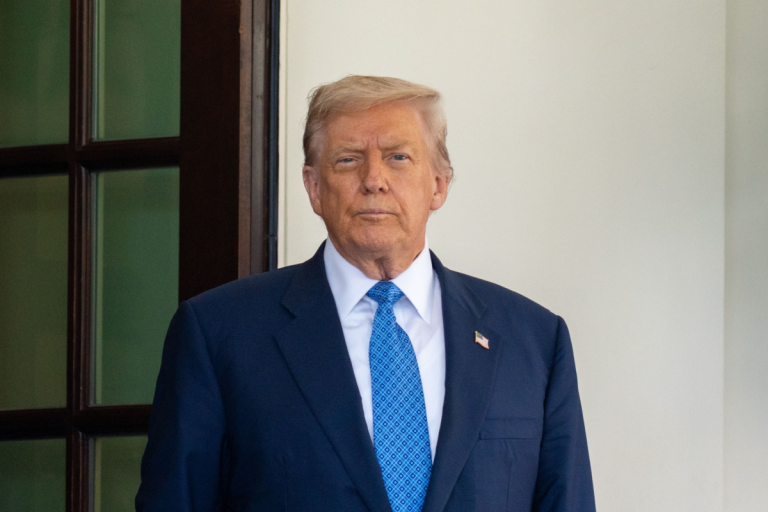Targeting Democratic Projects
President Donald Trump signaled Thursday that the government shutdown, now in its second day, gives him what he called an “unprecedented opportunity” to slash federal agencies and programs tied to Democrats. The statement followed his administration’s freeze of $18 billion in funding for New York City infrastructure projects and the cancellation of $8 billion earmarked for climate-related programs in Democratic-leaning states. Both measures directly impact the home state of Democratic leaders Sen. Chuck Schumer and Rep. Hakeem Jeffries. The funding halts were announced not by the agencies overseeing the projects, but by Russell Vought, director of the White House Office of Management and Budget.
Trump said he would soon meet with Vought to review which agencies could face cuts, weighing whether those reductions would be temporary or permanent. On social media, Trump referred to Vought as “he of Project 2025 Fame,” referencing the conservative blueprint for government reform that Vought helped draft, though Trump previously denied links to it during his campaign.
Mass Firings on the Table
The administration has already warned agencies to prepare for sweeping layoffs. Vought and Vice President JD Vance said Wednesday that firings could begin within days, with White House press secretary Karoline Leavitt estimating the number would be “in the thousands.” Trump told conservative outlet OAN that Democrats “could have projects permanently cut” if they fail to reach an agreement. While past shutdowns typically led to furloughs with back pay, officials have hinted at outright terminations this time, a step critics argue would politicize the process and worsen the impact on federal employees.
The shutdown began after Congress failed to pass a funding bill before the Sept. 30 fiscal deadline. Republicans proposed a stopgap measure to extend funding until late November, but Democrats blocked it, insisting that any short-term deal include an extension of enhanced Obamacare tax credits, which reduce health insurance costs for millions of Americans. Treasury Secretary Scott Bessent escalated rhetoric Thursday, accusing Democrats of “negotiating like terrorists” and guaranteeing no agreement on ACA credits.
Political Stakes and Fallout
The shutdown underscores a broader clash over the scope of government and the role of federal programs. Democrats argue that enhanced health subsidies are essential to protect working families, while Republicans frame them as excessive spending. Trump has used the impasse to frame Democrats as responsible for federal disruption while simultaneously threatening targeted cuts to their priorities. His approach has raised concerns over whether shutdown negotiations are being used to pursue partisan punishment rather than compromise.
Meanwhile, federal workers are bracing for uncertainty. The Congressional Budget Office estimated that up to 750,000 employees could be furloughed without pay, while others deemed essential would continue working unpaid until funding is restored. The administration’s suggestion of mass firings has deepened unease, with workers uncertain whether positions will return once the shutdown ends.
Next Steps in the Showdown
The Senate is expected to continue voting on competing funding measures in the coming days, though both chambers remain deeply divided. Democrats are standing firm on ACA credits, while Republicans emphasize fiscal restraint and temporary extensions. Trump, meanwhile, has framed the standoff as an opening to reshape federal agencies in line with conservative priorities. His administration has not clarified when he will meet with Vought to finalize recommendations on agency cuts, leaving the scope of possible reductions uncertain.
As negotiations stall, the government shutdown threatens to drag on, with federal employees, infrastructure projects, and public services caught in the middle. The political maneuvering highlights how shutdowns have shifted from temporary fiscal disputes to high-stakes battles over the structure of government itself, with long-term consequences for policy and governance.


